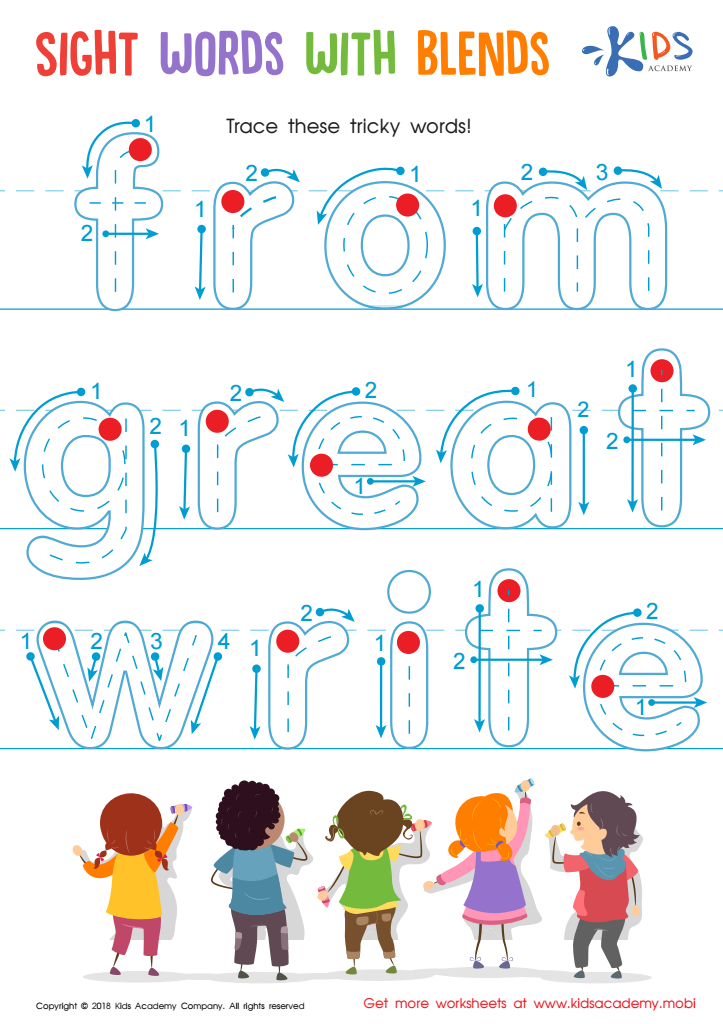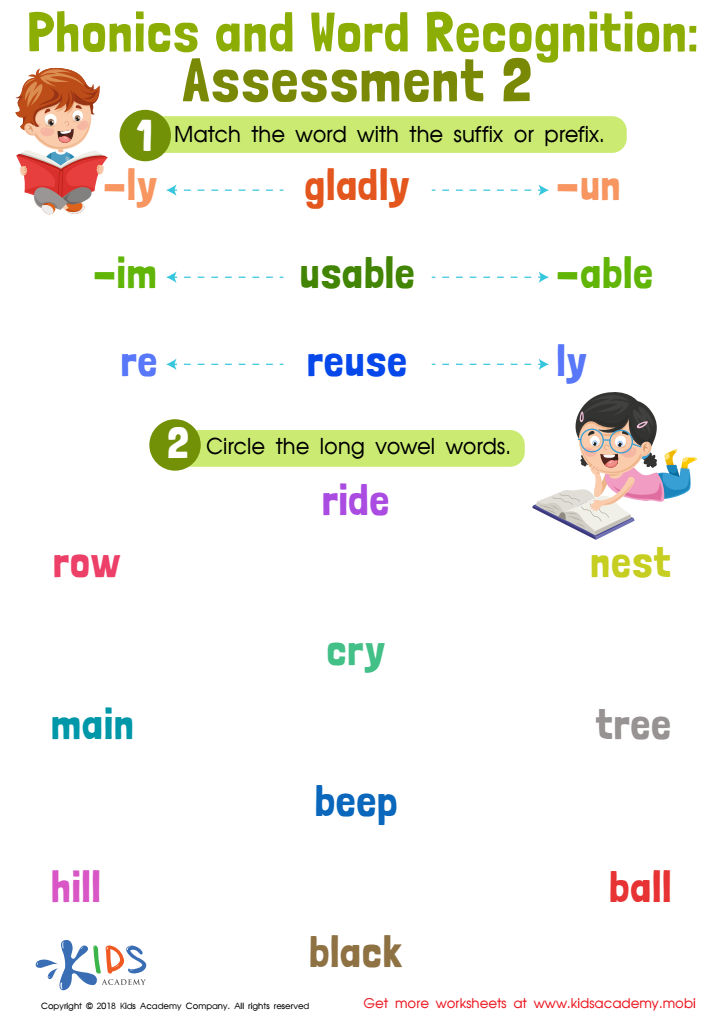Phonics recognition Reading Worksheets for 7-Year-Olds
3 filtered results
-
From - To
Our Phonics Recognition Reading Worksheets for 7-Year-Olds are designed to enhance children's understanding of phonics in a fun and interactive way. Tailored to the learning needs of second graders, these worksheets help young learners identify, sound out, and blend phonemes to improve their reading skills. Each activity builds on foundational phonics principles, enabling better word recognition and pronunciation. Engaging visuals and age-appropriate exercises make learning enjoyable. Equip your child with the tools they need for reading success by exploring our expertly crafted phonics worksheets, perfect for both classroom use and home practice.


Sight Words with Blends Worksheet


Phonics and Word Recognition: Assessment 1 Worksheet


Phonics and Word Recognition: Assessment 2
Phonics recognition is a cornerstone of early literacy development and an essential tool for 7-year-olds learning to read. At its core, phonics instruction involves teaching children the relationships between letters and sounds, allowing them to decode words and understand written text. For parents and teachers, investing in phonics instruction offers multiple benefits.
Firstly, phonics enhances reading fluency. When children can swiftly decode words, their reading becomes more automatic, allowing them to focus on comprehension and enjoy the story. This fluency is vital for academic success as reading permeates every subject.
Secondly, phonics builds a strong foundation for spelling and writing. Understanding the predictable patterns in words enables children to spell more accurately and express their ideas with greater confidence.
Phonics also boosts comprehension. When kids can effortlessly decode words, they can better understand and retain what they read, fostering critical thinking and a love for learning.
Moreover, early literacy skills are linked to long-term academic performance. By laying a solid foundation at age seven, parents and teachers can help children acquire the skills they need to excel in higher grades.
Lastly, strong reading abilities can have positive social and emotional impacts, boosting self-esteem and encouraging a lifelong passion for reading. In summary, phonics instruction is integral to a comprehensive early childhood education, setting the stage for a lifetime of learning and academic achievement.
 Assign to My Students
Assign to My Students






.jpg)












